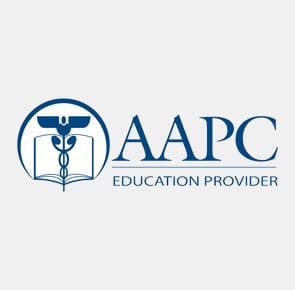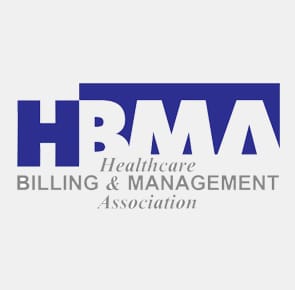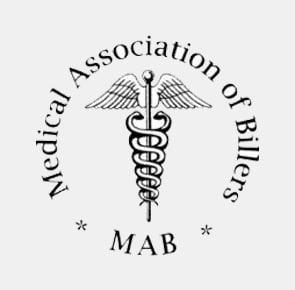What is Medical Billing and Coding?
When you receive a bill from a hospital or healthcare provider, it includes codes for the services performed. Medical coding translates medical reports and health information into standardized codes used by healthcare providers and insurance companies. Medical billing involves submitting these coded claims for payment. Specialists in billing and coding need to understand medical records, coding systems, and billing processes. As standards evolve, professionals like certified coding associates (CCA) and health information technicians must continue their education and training.
For those interested in this field, choosing the right medical billing and coding training program is key. Many accredited schools and online courses offer certifications, preparing students for exams and equipping them with the skills needed for the healthcare industry. Whether pursuing a diploma, associate degree, or certification, enrolling in an accredited program is the first step toward a successful career in this growing field.
A medical billing and coding specialist or health information technician often works in an office setting, though many professionals also work remotely, handling diagnostic coding and tracking patient health information from home. While medical billers and coders typically have separate roles, smaller offices may combine both tasks into one position. These specialists can work in various healthcare environments, including insurance companies, government agencies, and health information technology firms. Since most of the work is computer-based, professionals in this field must be comfortable with desk work.
For those seeking to enter the medical billing and coding field, training programs are available to equip students with the necessary skills to succeed in both remote and in-office roles. Whether working in healthcare settings or for insurers and data management firms, trained specialists play a crucial role in the accuracy and efficiency of the medical billing and coding process.
The US Department of Labor’s Bureau of Labor Statistics (BLS) projects a 9% job growth for medical records specialists from 2023 to 2033. As the largest industry in the nation, the healthcare sector, fueled by an aging population, continues to drive demand for medical billing and coding professionals. Prospective students can find medical billing and coding programs at community colleges, technical colleges, and universities, with options like associate degree programs or certification courses. These programs cover a range of subjects, including anatomy, health information technology, medical insurance, medical terminology, and diagnostic coding. Students can also opt for online programs, which prepare them for entry-level positions across the US.

Components of A Successful Medical Billing & Coding Career
Perhaps one of the best ways to gauge the success of a medical billing and coding career is by how many bills are returned due to coding and/or billing errors. If the rate is very low, the person doing the job is good at their task. This is a job requiring attention to detail and good organizational skills. The information contained in billing and coding goes beyond a patient and insurer. Because the codes are standardized, the CDC can analyze the scope of current prevalent diseases in an area via code analysis. A successful medical biller or coder understands the importance of their work and accepts that continuing education is necessary to keep current on updates to the coding system. In just the last few years there was a major update to coding that required all new training for many in this profession.
Featured Online Programs
What Does A Medical Coding and Billing Specialist Do?
While medical billing and coding are often used interchangeably, they refer to closely related but distinct processes. Coding involves translating medical information, such as diagnoses or prescriptions, into standardized codes for billing purposes. There are thousands of these codes, each corresponding to a specific illness, injury, or procedure. For example, when a patient visits the doctor, a nurse may conduct tests, followed by the doctor’s examination, diagnosis, and treatment plan. Each of these actions is assigned a code. The medical coder then translates the visit into a list of codes for billing. International Classification of Diseases (ICD) codes are used for illnesses and injuries, while Current Procedure Technology (CPT) codes correspond to the treatments and services provided. Each code set has its own regulations and placement guidelines on invoices.
The coder has the responsibility of entering the code data into a software program. It then goes to the biller, who uses that information to prepare the claim for the insurance company. The insurance company evaluates the claim and returns it to the medical biller. The medical biller then ascertains how much the patient owes based on the individual’s health insurance policy, and sends the invoice to the patient. If the patient does not pay the bill after a certain period of time, the medical biller must send the unpaid invoice to a collection agency.
Typical Trade School Requirements
You will usually need either a high school diploma or GED to begin training as medical biller or coder at a technical school or college. There are online certification programs that promise certification without the pre-requisite of a high school diploma or GED but be careful to check into these programs very closely before paying for their courses. Call employers in your area and ask if they would hire someone who obtained a certification from one of these programs. The answers will likely vary by region and you want to make sure that, whatever certification you receive, it will allow you to begin work right away in your new profession.
Typical Certifications Needed
 A medical biller should receive certification as a Certified Professional Biller, or CPB. Certification shows the individual possesses the skills necessary to submit claims as per private insurer and government regulations, resolve claim denials, regularly follow-up claims, and post payments and adjustments. They will also know how to appeal submissions and send claims for collection. A medical coder should receive certification as a Certified Professional Coder (CPC). Certified coders are well-versed in medical code sets, surgical coding, coding guidelines and compliance practices.
A medical biller should receive certification as a Certified Professional Biller, or CPB. Certification shows the individual possesses the skills necessary to submit claims as per private insurer and government regulations, resolve claim denials, regularly follow-up claims, and post payments and adjustments. They will also know how to appeal submissions and send claims for collection. A medical coder should receive certification as a Certified Professional Coder (CPC). Certified coders are well-versed in medical code sets, surgical coding, coding guidelines and compliance practices.
Exam or Experience Needed for Certification
Medical billing graduates should take the National Healthcare Association’s Certified Professional Billing (CPB) exam. Coding graduates should take the American Association of Professional Coders (AAPC) credentialing examination once they have received their certificates. The AAPC offers various certifications, such as specialty coder, inpatient coder, outpatient coder, and risk adjustment professional.
Online Associate Degree
An associate degree in this field is available. However, you might consider opting for an associate degree in Healthcare Informatics and medical billing and coding certification. This will provide you with a myriad of opportunities to move forward in your career.
Example Courses:
- Anatomy and Physiology
- Medical Office Administration
- Database Administration
Online Certificate Degree
Those earning a certificate in medical billing and coding will have knowledge of health information systems and health insurance and reimbursement. You can quickly earn this certification and then start a career right away. Considering the need for medical billers and coders, you might be able to find a job that lets you work from home while helping a large hospital in a city somewhere.
Find Online Medical Billing & Coding Programs
Example Courses:
- Anatomy and Physiology
- Coding and Terminology
- Data Information Processing
- Insurance Billing
- Medical Law and Ethics
- Medical Office Management
Fields of Study
Billing – Students study medical insurance billing practices. All courses should help students prepare for examination and certification.
Coding - Students learn the World Health Organization’s International Classification for Diseases (ICD) system, which classifies and codes all procedures and symptoms.
Here are the main types of Medical Billing & Coding programs:
- Medical Billing - A medical biller is responsible for ensuring that bills are correct and are submitted to insurance companies, patients and all relevant parties. When bills go unpaid, the medical biller must pursue payment through a collection agency.
- Medical Coding – The medical coder reviews hospital and clinical statements and assigns standard codes to each item. They also must include the names of physicians, the dates of service, and similar information. Medical coders must pay great attention to detail and, if information on the statements is unclear, they must conduct research for clarification.
- Professional Billing – Professional billers must know coding and billing. They bill for claims made by physicians and suppliers, as well as other providers for outpatient and inpatient services.
- Institutional Billing – Institutional billers bill claims generated for work done by hospitals, nursing homes and with inpatient and outpatient services. The bills may include laboratory, radiology, and other services, as well as the use of specific equipment. Coding for such work is more complicated than other forms of medical billing. Institutional billers generally perform only billing and collections and not the other types of tasks medical and professional billers may do.
Potential Careers & Salaries for Medical Billing & Coding Graduates
Medical billing and coding goes by other names, including medical billing clerks, healthcare billing specialist, diagnostic coder, and clinical coder. Salaries of coders and billers are similar, averaging $35,000 annually. Experience and location will play a role when it comes to salary.
For career furtherance, the medical biller or coder may want to enroll in courses and improve their skills sets, moving up toward advanced and specialty certification. They can also earn appropriate certifications to advance to supervisory or management status. Managers may make $100,000 or more, depending on experience and geographic area.
Find Online Colleges Offering Medical Billing & Coding
Median Salaries by Occupation
| Occupation | Entry-Level | Mid-Career | Late-Career |
|---|---|---|---|
| Medical Coding Specialist | $35,200 | $55,500 | $62,900 |
| Medical Billing Specialist | $34,600 | $39,700 | $42,300 |
| Certified Billing & Coding Specialist | $35,400 | $49,200 | $52,300 |
| Billing Coordinator | $40,500 | $47,500 | $52,000 |
| Medical Billing Manager | $44,700 | $51,400 | $59,800 |
Important Questions to Ask
How long does it take to earn an online degree or certification?
If pursuing an associate’s degree in coding at a community college, expect to receive your degree within two years. If you are pursuing an online certificate program, you can likely receive your certification within one year. This timeline is based on a full-time program, so expect it to take longer to earn your degree or certification if you are pursuing it on a part-time basis.
How much does an online degree or certificate cost?
A medical billing and trade school degree is relatively affordable. If you are only looking for certification rather than an associate’s degree, your tuition may range from $1,500 to $3,000. If you are attending a community college, your tuition for a two-year associate’s degree may range from $10,000 to $14,000.
How many students graduate “on time,” in 12 months or 24 months?
On time graduation is an important factor when considering a medical billing and coding trade school. If a school has a low on time graduation rate, it is possible there are issues with staffing, curriculum, or something else vital to your success in the program. While a low on time graduation rate is not a reason to dismiss a school out of hand, you should look into the reasons why the on time graduation rate is especially low and see if this may affect your education.
What kind of accreditation does the online program hold? How is it regarded in the field?
When considering a medical billing and coding program, look for those accredited by the Commission of Accreditation for Health Informatics and Information Management Education (CAHIIM), or the American Academy of Professional Coders (AAPC). The best medical and billing coding programs are accredited by one or both organizations but steer clear of programs accredited by neither. It’s always a good idea to check, even if a program advertises itself as accredited with either the CAHIIM or AAPC, that its accreditation is still current and in good standing. In addition, look for regionally accredited schools. The six regional accreditation agencies are The Middle States Association of Colleges and Schools, The New England Association of Schools and Colleges, The North Central Association of Schools and Colleges, The Northwest Association of Schools and Colleges, The Southern Association of Schools and Colleges, and The Western Association of Schools and Colleges. Without regional accreditation, you may not be able to transfer any credits you receive to a different school or receive either federal financial aid or many scholarships and grants.
Potential Scholarships
-
AHIMA Foundation Scholarships
Amount: $1,000
Deadline: September 30
The American Health Information Management Association (AHIMA) Foundation offers various scholarships for those studying health information management (HIM). Medical billing and coding students earning an associate’s degree might apply for the $1,000 scholarship for those “pursuing a Commission on Accreditation for Health Informatics and Information Management Education (CAHIM) accredited degree in HIM or HIT.” Applicants must have a minimum 3.5 GPA.
-
HIMSS Foundation Scholarships
Amount: $5,000
Deadline: Varies
The Healthcare Information Management Systems Society (HIMSS) Foundation offers a $5,000 undergraduate scholarship for a student in a healthcare IT-related field. The recipient also receives a trip to the HIMSS Global Conference and Exhibition, although some restrictions may apply.
Professional Organizations
- AAPC
- HBMA
- MAB

AAPC
American Academy of Professional Coders
The AAPC is the largest credentialing and training program for medical billing and coding workers. Membership includes four free webinars annually, as well as discounts on professional development and continuing education courses. The organization also offers extensive networking opportunities for those seeking new jobs, mentoring, or just the desire to boost their professional support system.

HBMA
Healthcare Billing and Management Association
The non-profit HBMA is a member-led organization, representing more than 40,000 employees of professional billing departments and revenue cycle management companies. Its message boards are among the useful for any professional medical biller and coder, where they are able to ask general and specific questions about their field. HBMA offers certification for healthcare billing employees, as well as opportunities for professional development and continuing education.

MAB
Medical Association of Billers
MAB offers the nationally recognized credential of Certified Medical Billing Specialist, the oldest type of medical billing certification in the country. MAB also offers the Certified Medical Records Technician certification. MAB is an approved federal agency vendor, and its curriculum is licensed by the Commission for Post-Secondary Education.
Choosing an Accredited Vocational School
When choosing a school, look for and confirm the accreditation. Research not only the curriculum and graduation rate, but the costs beyond tuition such as fees, books and software. Find out the percentage of graduates who find employment in their field within a few months of receiving their certificates.
If you find that the school is not accredited, it’s best to drop them prom your list of prospective educational institutions. Not only will your degree or certificate likely hold no value, but you won’t even be able to get financial aid or grants to help defray the cost of that education.
Online vs On-Campus vs Hybrid if Available
For busy people, taking online medical and billing coding classes make sense. Not only does earning your certification online give you flexibility but this is the type of career offering many remote job opportunities. Since your job will not require hands-on work with patients or doctors (all communication will likely be through email or whatever system you process patient information through), then there is no reason for you to have to be on a campus when you take your courses.
Of course, if you live near an institution offering these courses and you like the idea of a face-to-face education, in which you can discuss your courses with a professor or other students, then you may want to consider taking your classes on campus. However, many people need the flexibility that online courses offer, and this will be hard to achieve with an on-campus course regimen.
Does the School Have Post Graduate Job Placement Assistance?
Job placement assistance is a great asset, and is a definite consideration when attending a trade school. Since so many in the medical billing and coding field work remotely, ask about both in-house and online job placement assistance. Look for a school with a strong career services department for graduates.
